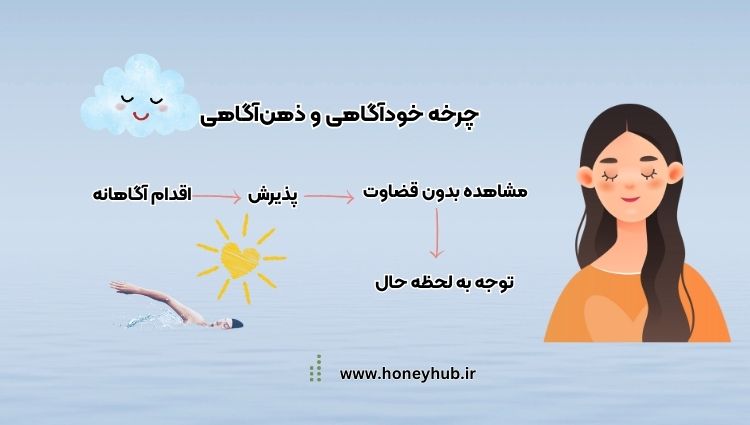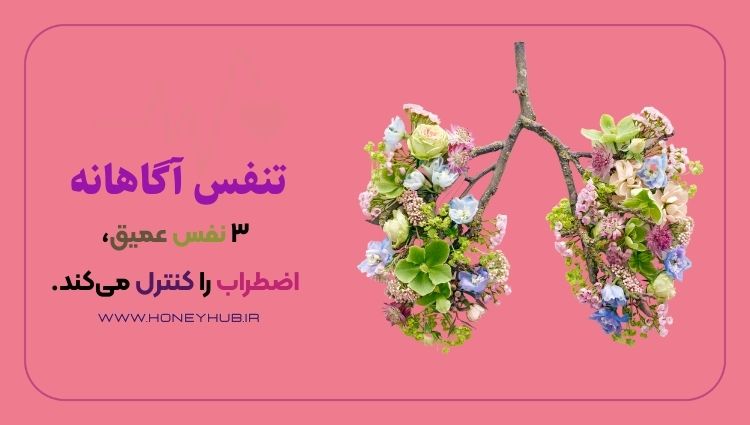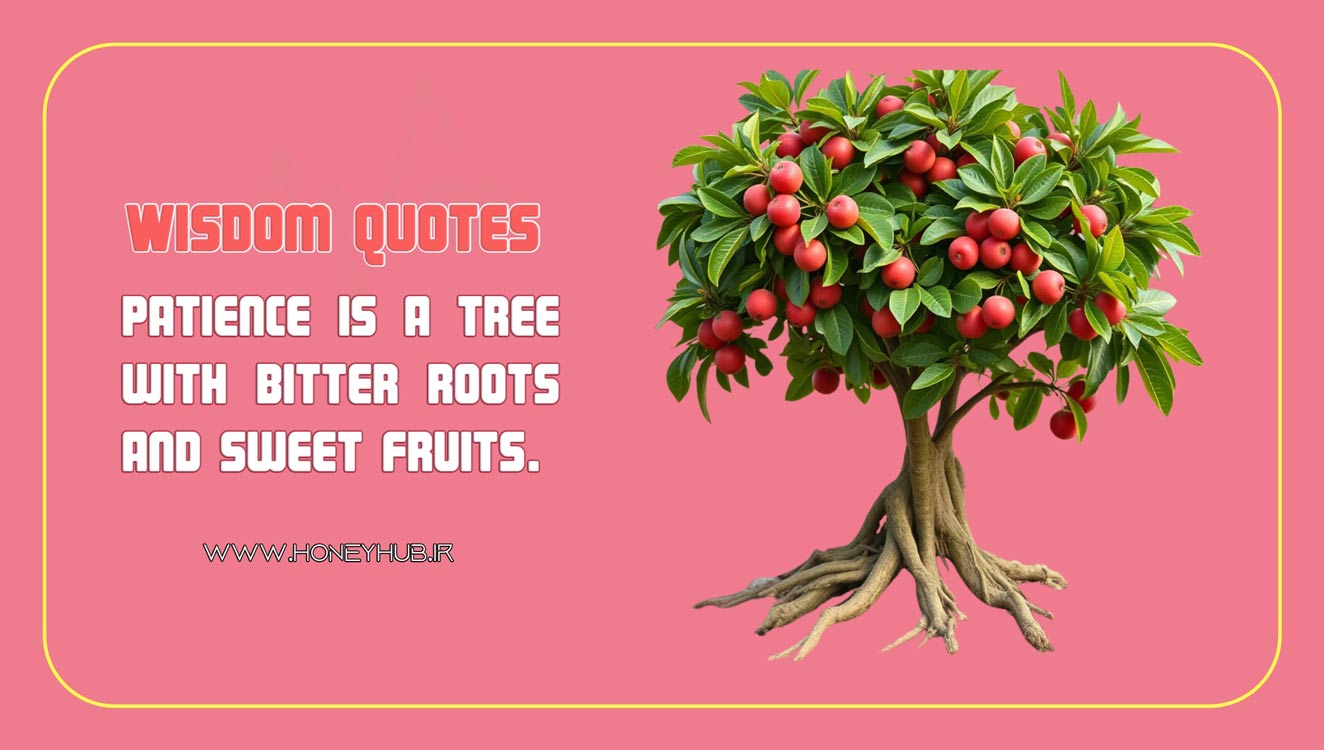Does your mozzarella refuse to stretch or just burn? The secret is science. From "pasta filata" to the crucial role...
The Ultimate Guide to Self-Improvement and Mindfulness: A Journey to Inner Strength and Peace
Have you ever felt deep within yourself that there's potential beyond what you currently are? Are you seeking a way to navigate life's challenges with calmness and find a deeper sense of satisfaction in your everyday life? In today’s fast-paced world, where our attention is constantly pulled in different directions, finding the path to inner peace and personal growth sometimes feels like finding a rare gem. Many of us are in search of effective strategies for self-improvement and tools to manage the unavoidable stresses of life.
This guide offers you a beacon of practical wisdom, rooted in timeless principles and a modern understanding of humanity. Self-improvement is a conscious and continuous effort to enhance personal qualities, skills, knowledge, and ultimately, overall well-being. Alongside that, mindfulness is the art of fully being in the present moment—aware of what we feel and experience without judgment or interpretation. These are not overnight solutions but accessible, lifelong journeys toward personal growth and emotional balance. Join us as we take intentional and conscious steps on this path.
The Foundation of Growth: Cultivating Self-Awareness and Presence
The foundation of any meaningful personal growth and development lies in cultivating self-awareness. This inward journey is often the starting point for major transformations; it's where an individual, by understanding their inner workings, can engage more consciously with the world around them.
The Power of Looking Inward: Decoding the Inner Landscape
True growth begins with an honest and compassionate look within. This means having the courage to recognize thoughts as they arise, feeling emotions without being overwhelmed by them, and observing the behaviors and hidden motivations behind them. Ancient sages taught us that a thousand-mile journey begins with the first step inward, for there is an eternal principle that says: "He who truly knows his inner world holds the key to understanding the outer world." This deep self-knowledge is not just a mental exercise but an experiential and profound understanding that leads to better decision-making, more effective and empathetic communication, and better emotional management.

Mindfulness in the Moment: Simple Practices for Being in the Now
Simple mindfulness exercises are unique tools for developing vital awareness of the present moment. These exercises help us anchor in the now, especially when our minds are restless and scattered. The goal is not to empty the mind but to learn to observe its contents with calmness and curiosity, without judgment.
- Conscious Breathing: This is perhaps the most accessible mindfulness technique. Simply focus your attention on the natural rhythm of your breath. Even one minute of focused breathing can help calm negative thoughts and induce a state of relaxation.
- Sensory Engagement (5-4-3-2-1 Technique): This technique involves engaging all five senses to powerfully anchor you in the present. You’re asked to identify five things you see, four things you can touch, three sounds you hear, two smells you perceive, and one taste you experience.
- Body Scan: This practice involves guiding your awareness sequentially through different parts of your body, noticing any sensations, tension, or emotions tied to each area without judgment. It creates a deeper connection with your physical self and can help release accumulated tension.

Practical Tip: The One-Minute Mindful Pause
For an immediate, practical application of mindfulness, incorporate a "One-Minute Mindful Pause" into your daily routine:
- Step 1: Pause from your current activity and find a comfortable, seated or standing position.
- Step 2: If comfortable, close your eyes or soften your gaze, focusing downward.
- Step 3: Take three deep, slow breaths, focusing on the sensation of air entering and leaving your body.
- Step 4: Briefly scan your body from head to toe and pay attention to areas of tension. Consciously relax those areas.
- Step 5: Gently bring your awareness back to your surroundings and continue your activities.
This simple practice can act like a "reset" button, helping manage stress and improve focus throughout the day.
Building Inner Strength: The Art of Resilience and Emotional Balance
Cultivating emotional resilience — the ability to overcome life’s difficulties and bounce back from setbacks — is a key pillar of well-being. This inner strength means not avoiding challenges but developing the capacity to manage emotions constructively and maintain balance, even in the face of adversity.
The Art of Patience: Going with Life’s Flow
Patience is often misunderstood as passive waiting. In its true form, however, patience is an active form of endurance and persistence, especially when under pressure or facing difficulties. Patience involves maintaining inner calm, making wise decisions instead of emotional reactions, and persevering toward goals despite obstacles. A timeless lesson reminds us: "The strongest mind is the one that remains patient under pressure." Ancient wisdom also teaches that "Patience is a tree whose roots are bitter, but its fruit is sweet." True patience includes enduring hardship and mastering one’s impulses against fleeting desires.

"The strongest mind is the one that remains patient under pressure."
"Patience is a tree whose roots are bitter, but its fruit is sweet."
Mastering Your Inner Climate: Tools for Emotion Regulation
Emotion regulation refers to the ability to manage and respond to emotional experiences in a healthy and adaptive way. Life inevitably presents us with situations that evoke a wide range of emotions. Learning how to navigate this inner climate is crucial for overall well-being.
- Identifying and Naming Emotions: The simple act of acknowledging and labeling an emotion (e.g., "I feel frustrated") can create space and reduce its intensity.
- Deep Breathing Exercises: Conscious breathing is a powerful tool for calming the nervous system, particularly during moments of intense emotion.
- Challenging Negative Thoughts: Negative thought patterns can significantly impact emotional states. Learn to question these thoughts: "Is this thought entirely true? Is it helpful? What’s another way to see this situation?"
- Practice Self-Compassion: Treat yourself with understanding and kindness, especially in difficult times, instead of harsh self-criticism.
"Master your impulses like a wild horse; guide your emotions, don't be enslaved by them."
Practical Tip: The "Acknowledge, Accept, Act" Technique for Difficult Emotions
When facing challenging emotions, the "Acknowledge, Accept, Act" technique can offer a structured approach:
- Acknowledge: Pause and pay attention to the emotion. Name it inside yourself without judgment (e.g., "This is anxiety" or "I feel angry").
- Accept: Allow the emotion to be present without trying to suppress, fight, or wish it away. Remind yourself that it’s natural to feel this way; emotions are human experiences.
- Act: Choose a constructive action. This doesn’t necessarily mean acting on the emotion, but doing something that supports your well-being. It might include a calming activity (such as deep breathing or a short walk), engaging in problem-solving if needed, or seeking support from a trusted person.
Intentional Progress: Discipline and Consistent Action as Keys to Transformation
The journey of self-improvement is inherently an active process that thrives on discipline and consistent effort. Through these sustained actions, guided by a clear intent, lasting changes emerge. True freedom in this context is not the absence of limitation but the self-imposed discipline that allows individuals to pursue higher goals and values without being ensnared by fleeting impulses or momentary discomforts.
The Power of Quiet, Ongoing Effort: Small Steps, Big Results
Significant personal achievements and transformations rarely come from one giant, sudden leap. They are often the result of accumulated small, consistent actions taken over time. This understanding is crucial, as it counteracts the prevailing societal pressure for immediate results, encouraging a more patient and sustainable approach to growth. As sages have advised for centuries: "The most beloved actions are those performed consistently, even if small."
Charting the Course: Setting Goals that Resonate with Your Soul
Intentional progress is greatly facilitated by setting clear and meaningful personal development goals. Without a destination in mind, efforts may become scattered and ineffective. Ancient teachers advised: "A person without a clear destination is like a ship without a rudder, tossed back and forth by every wave." Knowing the "why" behind your efforts—your deeper values and desires—strengthens the "how" and provides intrinsic motivation that keeps you going even when faced with challenges.
A practical framework for setting effective goals is the SMART criteria:
- S (Specific): Clearly define what you want to achieve.
- M (Measurable): Create criteria for tracking progress.
- A (Achievable): Ensure that the goal is realistic and attainable.
- R (Relevant): Align the goal with your broader personal values and goals.
- T (Time-bound): Set a realistic time frame for achieving the goal.
The Virtue of Self-Discipline: Mastering Impulses for True Freedom
Self-discipline is often seen as a restrictive force, but a more powerful perspective views it as the ability to make choices that align with long-term values and goals, even when confronted with short-term temptations, discomforts, or distractions. This means mastering inner impulses rather than being controlled by external circumstances. An eternal truth teaches us: "Real growth begins when you master your impulses, not merely your circumstances." Furthermore, it is said that "The one who fights against their base desires to align with higher principles is one of the most victorious."
"Real growth begins when you master your impulses, not merely your circumstances."
Practical Tip: The "Three Small Wins" Daily Practice
To foster consistency and make large goals more manageable, consider the daily practice of "Three Small Wins":
- At the start of each day, identify three small, specific, and achievable tasks that align with your larger personal development goals.
- Focus on completing these three tasks throughout the day.
- At the end of the day, acknowledge these completions as "wins." This simple act helps generate momentum, reinforces a sense of success, and makes the larger journey feel less overwhelming.
Weaving Wisdom into the Fabric of Daily Life: Living with More Purpose and Intention
The principles of mindfulness and self-improvement reach their fullest expression when they move beyond isolated practices and are woven into the fabric of everyday life. This transition is about cultivating intentionality – how we engage with daily activities, not just what we do.
Mindfulness in Motion: Integrating Presence into Your Daily Routine
Mindfulness is not confined to formal meditation sessions; it is a way of life that can be integrated into almost any activity.
- Mindful Eating: Instead of rushing through meals, take time to fully engage with your food—its colors, smells, textures, and tastes.
- Mindful Walking: Whether it’s a dedicated walk or simply moving from one place to another, bring awareness to the physical sensations in your body.
- Single-tasking: In a world that often celebrates multitasking, choosing to give full attention to one task at a time can significantly reduce stress.
- Mindful Driving: Transform your commute into a mindful experience. Pay attention to the feel of the wheel, the sound of the engine, and the landscape outside your windshield.
The Brightness of Gratitude: Finding Joy in the Everyday
The practice of gratitude involves consciously acknowledging and appreciating the good things in life, both big and small. It shifts our focus from what is lacking to what is present, nurturing a more positive and fulfilling perspective. Keeping a daily gratitude journal is a simple yet powerful practice. Ancient wisdom has always emphasized that recognizing our blessings, no matter how small, opens our hearts to more joy and contentment. "If you are grateful,” an age-old saying goes, “more will certainly be given to you."
Nourishing the Roots: The Importance of Holistic Self-Care
True, lasting self-improvement acknowledges the deep connection between mind, body, and spirit. Holistic self-care includes nurturing every aspect of your being.
Pillars of Holistic Self-Care
Nurturing each aspect supports overall well-being.
- Physical Activity: Regular exercise is a powerful stress reliever and mood booster.
- Healthy Diet: Nutritious food provides the necessary fuel for optimal body and mind performance.
- Adequate Rest: Sufficient sleep and rest periods are crucial for preventing mental and physical burnout.
- Social Connections: Meaningful relationships with others provide essential support and a sense of belonging.
"Take care of your body as if you are going to live forever; take care of your soul as if you are going to die tomorrow."
The Pursuit of Knowledge and Humility: Lifelong Learning and Open-Mindedness
Commitment to lifelong learning and intellectual growth is an essential part of a flourishing life and a key aspect of self-improvement. The wisest individuals have always been lifelong students of life, realizing that, as ancient teachers have stated, “Knowledge is the light that illuminates the way.” This search is not just about accumulating information but about developing new skills, gaining fresh perspectives, and nurturing empathy through understanding different viewpoints.
The important point is that eternal wisdom also teaches that true knowledge is often paired with humility – an openness to learning more and an understanding that “the more one learns, the more one realizes how little one knows.” This humility prevents pride and keeps the mind open to new insights and continuous growth, forming the foundation of true wisdom.
Final Thoughts: Embracing the Lifelong Journey of Growth and Flourishing
The paths of self-improvement and mindfulness are not about reaching a final destination called perfection, but about embracing a lifelong journey of discovery and continuous growth. In this conscious, ongoing effort—in this daily practice of looking inward, cultivating presence, and acting with intention—true transformation happens. The journey itself, with its inevitable challenges and triumphs, is where the most valuable lessons are learned, and inner strength is forged.
The power of self-awareness serves as a compass, guiding choices and illuminating the inner landscape. Patience becomes a steady companion, enabling us to navigate the ebb and flow of life with ease. Resilience is a capacity built through brave encounters with hardship and learning from each experience. Consistent effort, when coupled with discipline, turns dreams into reality, while a purposeful life weaves these principles into the rich fabric of a meaningful existence. As ancient paths to wisdom remind us, the commitment to bettering oneself is a noble pursuit, revealed through every conscious breath and every purposeful action. The greatest journey is the journey inward.
The deepest impact of engaging with these practices goes beyond skill acquisition or mere stress reduction. It creates a fundamental shift in one’s relationship with themselves and with life—a shift toward greater acceptance, deeper compassion, and a more profound sense of agency. May all those who embark on this path do so with courage, curiosity, and a kind heart, discovering the power, clarity, and inner peace that lies within them.





















Latest comments